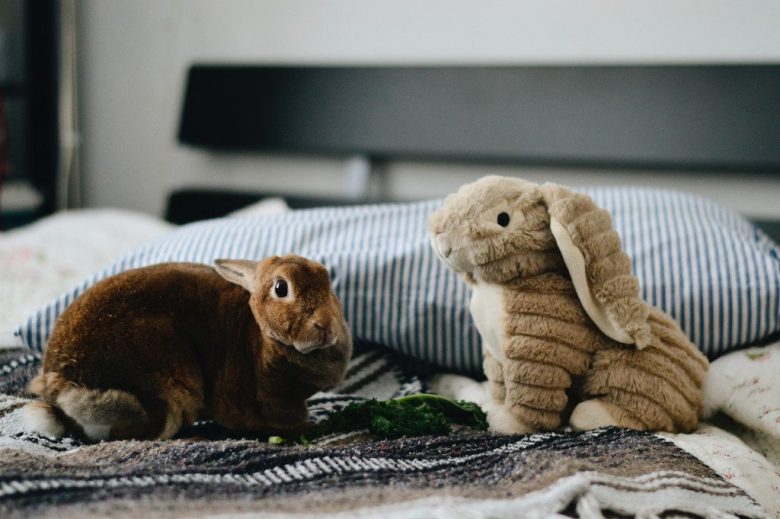Rabbits are cute and fun pets, but like all animals, they can get sick. Rabbit owners need to know about common health issues and take steps to protect their rabbits’ health. This complete guide will talk about five common rabbit health problems, including their causes, symptoms, and the best ways to treat them.
1. Dental Problems:
Rabbits’ teeth are always growing, and dental problems can happen if their food doesn’t have enough fiber or if they don’t chew enough. Misaligned teeth, or malocclusion, are a common problem that can cause incisors or molars to grow too far forward. Symptoms include losing weight, drooling, and having trouble eating. A rabbit should get regular dental checkups from a vet and eat a healthy diet full of hay and fresh vegetables to avoid and treat dental problems.
2. Gastrointestinal Stasis:
When a rabbit has gastrointestinal stasis, its digestive system slows down or stops working at all. This is a very bad condition. This can happen if you don’t eat enough fiber, are dehydrated, are stressed, or have dental problems. Symptoms include losing your appetite, feeling tired, and having less poop. As soon as possible, you should take your hat to the vet to find out what’s wrong and start treatment, which could include fluid therapy, pain management, and a carefully watched diet.
3. Problems with the Respiratory System:
Rabbits often have problems with their respiratory systems, which can be caused by things like not enough airflow, being in draughty places, or having a respiratory infection. Sneezing, stuffy nose, trouble breathing, and feeling tired are all signs of breathing problems. Maintaining a clean and well-ventilated living space, keeping rabbits away from smoke, and treating respiratory infections quickly are all important ways to keep rabbits from getting respiratory problems.
4. Parasitic Infestations:
Both external and internal parasites can be very bad for rabbits’ health. Mites and flees are common external parasites. Worms are common internal parasites. Itching, losing fur, being tired, and changes in the consistency of feces are all signs of parasitic infestations. Getting your pet groomed regularly, keeping its living space clean, and taking it to the vet for regular checkups can help prevent and control parasitic infestations. Veterinary medications may be used for treatment, either on the skin or in the mouth.
5. Urinary Tract Disorders:
Urinary tract disorders, like bladder sludge or infections, can happen to rabbits, especially those that eat a lot of calcium. If your cat has problems with its urinary tract, they might strain when they urinate, has blood in their urine, or changes how they use the litter box. Giving them a well-balanced diet, making sure they have access to clean water, and watching how they use the litter box are all important ways to keep this from happening. A vet may need to help with the diagnosis and treatment, which could include giving antibiotics or changing the pet’s diet.
Conclusion
To make sure your rabbit lives a long and healthy life, you need to keep an eye on its health and take care of any signs of illness right away. Rabbits can avoid and deal with common health problems by getting regular checkups with their vet, eating a balanced diet, living in a clean environment, and paying close attention to any changes in their behavior. Talk to a vet first so they can give you advice that is specific to your rabbit’s needs and health.
FAQs
1. How can I keep my rabbit’s teeth from getting cavities?
For dental health, it’s important to give your pet a healthy diet full of hay and fresh vegetables. Taking your pet to the vet for regular checkups can also help find and treat any dental problems early on.
2. What is gastrointestinal stasis, and how can I tell if I have it?
When a rabbit has gastrointestinal stasis, its digestive system stops working or moves very slowly. Symptoms include losing your appetite, feeling tired, and having less poop. Get your hat to a vet right away if you see these signs.
3. Is there a way to keep rabbits from having breathing problems?
Yes, keeping the rabbit’s living space clean and well-ventilated, keeping it away from drafts and smoke, and treating respiratory infections quickly can help keep rabbits from having respiratory problems.
4. How can I keep my rabbit from getting parasites?
To keep your pet free of parasites, you need to groom them regularly, keep their living space clean, and take them to the vet for regular check-ups. As for how to prevent and treat parasites, listen to what your vet says.
5. What are the signs that a rabbit’s urinary tract isn’t working right?
Urinating hard, having blood in the urine, or changing how often you use the litter box are all signs. To keep your rabbit’s urinary tract healthy, make sure it has a balanced diet and fresh water, and that you watch how it uses the litter box.
6. Can I care for my rabbit at home to prevent it from getting parasites from outside?
Yes, regular care at home can help prevent external parasites. But you should discuss with your veterinarian how to properly care for your pet and use preventive products.


